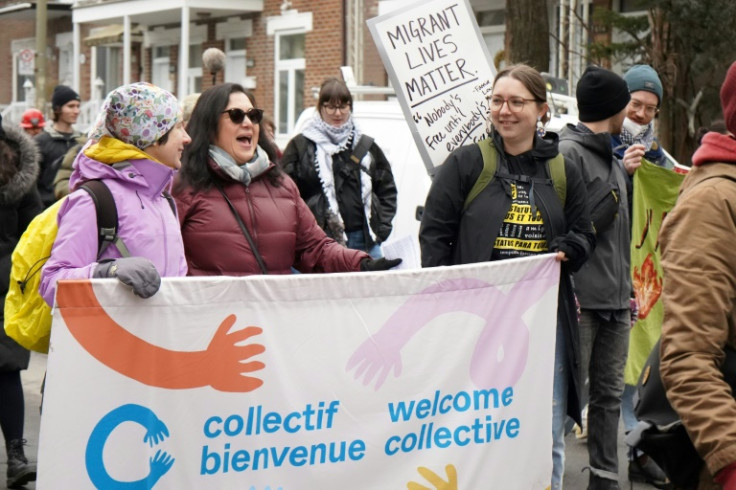
Canada offered hope for thousands of undocumented migrants with Prime Minister Justin Trudeau promising a major regularization program. But in just a few months, political winds changed, leaving dreams of residency in jeopardy.
"I had a lot of hope but now I don't know what to think. It's very hard," Nina, a Colombian migrant to the country, told AFP.
The 50-year-old landed in Canada with her young daughter in 2008. "Here, I found peace. I was fleeing the violence of my country and family violence," she said.
But then, in 2015, she was asked to leave Canada.
"I wanted to kill myself. I don't know how I will cope with all this. My daughter has become Canadian, my life is here," she said, struggling to keep her emotions in check.
The government's latest statements have created confusion among undocumented migrants and the associations that support them, after years of regularization talks with officials.
There are between 100,000 and one million undocumented migrants in Canada, like Nina, according to different estimates.
Immigration Minister Marc Miller continues to promise in the coming months an "ambitious" program for people who have been in the country "sometimes for years with children who grew up here."
But, he told AFP, it "won't be for everyone."
Canada is no longer "exempt from the toxic rhetoric on immigration that is affecting all Western countries," he lamented.
According to the last census in 2021, 23 percent of the population was foreign-born.
Polls, however, have shown a discernible shift in public opinion on immigration.
After years of broad support for Canada's open immigration policy, Abacus Data found that 67 percent of recent respondents considered immigration levels in Canada to be either too high or much too high.
Meanwhile only 24 percent believed that the current level of immigration contributes positively to the country.
"It would be going too far to say that there's been an anti-immigrant turn in Canada," says Andrew McDougall, a political scientist at the University of Toronto.
"I think what has started to happen is there's been more questions raised about how immigration is being done."
At the start of 2024, Canada's population surpassed 41 million thanks to strong immigration encouraged in order to help ease a labor crunch.
But support waned as the record number of arrivals compounded a housing crisis and strained health care and other social services.
In response, the government toughened its tone, announcing that Canada for the first time in its history would reduce the number of temporary foreign workers, as well as foreign students.
Associations fear undocumented migrants now risk becoming "history's forgotten ones."
"We are not giving ourselves the means to reform the system or to implement something that will help get these people out of the violence, harassment and exploitation that they endure every day," said Carole Yerochewski of the Center for Immigrant Workers.
Exile is a hardship, and Mexican migrant Mariana said she just wants "to be useful to society and no longer live in hiding."
She works under the table as a household helper for an elderly person, earning a mere Can$1.50 (US$1.10) per hour -- nowhere near the legal minimum wage.
"Canada lacks workers, so why don't we take care of regulating those who are already here? It's incomprehensible to me," added Annette, who came from Cameroon five years ago.
She admitted to almost never leaving her home in Quebec province for fear of being arrested and deported, but gets by with the support of non-profit agencies.
Canada's last regularization plan dates from the time of Pierre Trudeau, the father of the current prime minister. In August 1973, a bill was passed with little opposition to regularize some 39,000 people.




